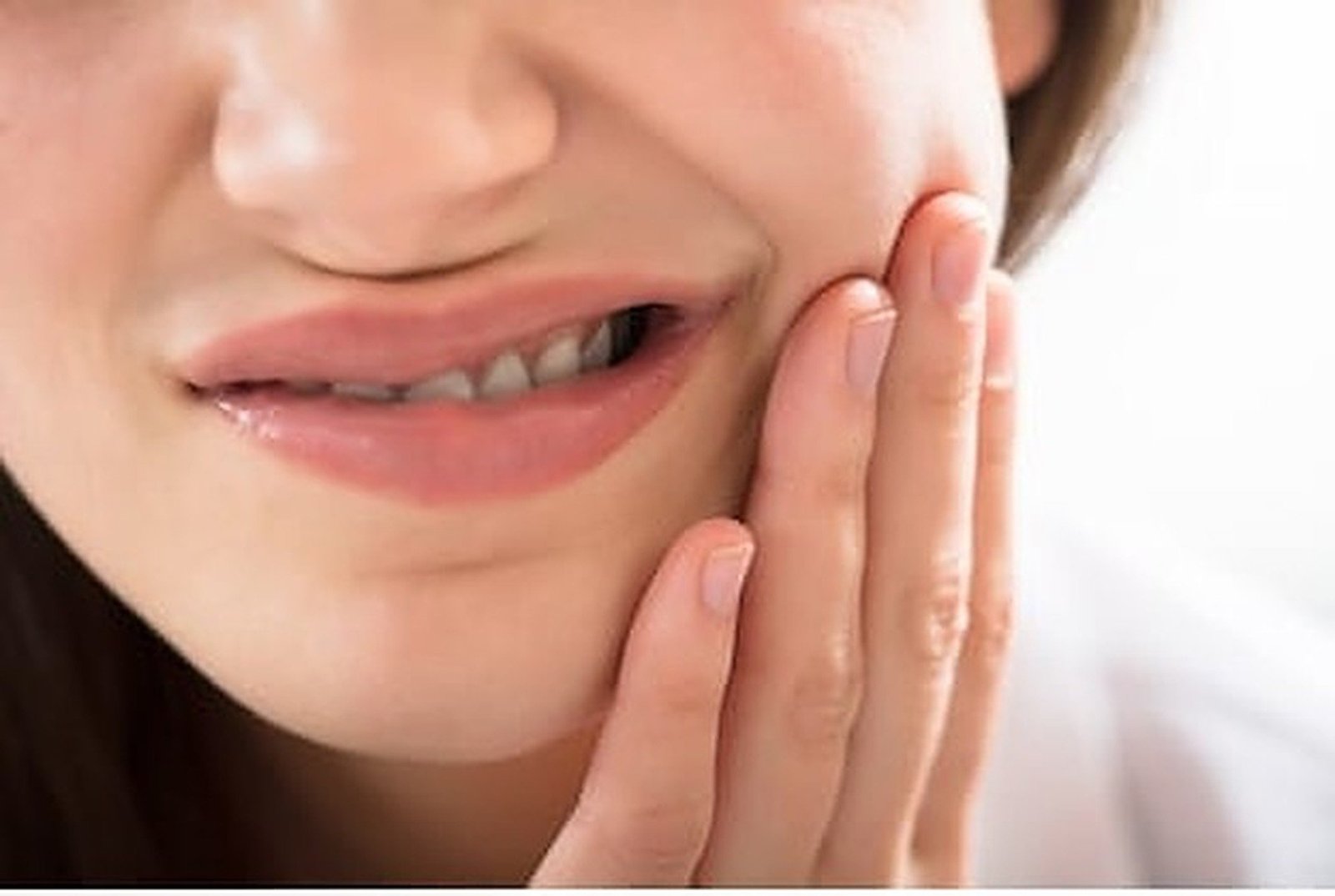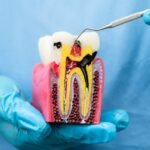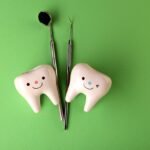Several factors can contribute to the development of teeth sensitivity:
1. Enamel Erosion: Tooth enamel is the hard, protective outer layer of teeth. Erosion can occur due to various factors, such as frequent exposure to acidic foods and beverages (like citrus fruits, soda, and wine), excessive brushing, or teeth grinding (bruxism).
2. Gum Recession: When gums recede, the sensitive roots of the teeth may become exposed. This can be a natural part of aging or may result from gum disease, aggressive brushing, or inadequate oral hygiene.
3. Dental Procedures: Recent dental work such as fillings, crowns, or whitening treatments can temporarily increase tooth sensitivity. This should resolve as the mouth heals.
4. Cracked or Fractured Teeth: Cracks in teeth can expose the inner nerves, leading to sensitivity to temperature changes or pressure.
5. Tooth Decay: Cavities and decay can also lead to sensitivity as they invade the enamel and reach the dentin.
6. Acidic Mouthwash or Whitening Products: Some oral hygiene products can increase sensitivity when used excessively or incorrectly.
Symptoms of Teeth Sensitivity
The primary symptom of teeth sensitivity is sharp pain or discomfort in one or more teeth when exposed to certain stimuli. Common triggers include:
– Hot or cold foods and drinks
– Sweet or acidic foods
– Cold air
– Touch during brushing, flossing, or dental cleanings
The intensity and duration of the pain can vary among individuals; in some cases, it may be fleeting, while in others, it may persist longer.
Prevention and Treatment Options
While teeth sensitivity can be uncomfortable, various preventive measures and treatment options can help alleviate symptoms.
Preventive Measures:
1. Gentle Brushing Technique: Use a soft-bristled toothbrush and adopt a gentle brushing technique. Aggressive brushing can wear down enamel and irritate gums.
2. Choose the Right Toothpaste: Sensitivity toothpaste contains compounds that help block the transmission of sensation from the surface of the tooth to the nerve. Look for toothpaste specifically designed for sensitive teeth.
3. Limit Acidic Foods: Reducing consumption of acidic foods and drinks can help protect enamel. If consumed, rinse your mouth with water afterward and avoid brushing immediately after eating acidic items.
4. Maintain Good Oral Hygiene: Regular brushing and flossing can prevent decay and gum disease, both of which contribute to sensitivity.
5. Stay Hydrated: Drinking plenty of water helps wash away food particles and neutralize acids in the mouth.
Treatment Options:
1. Fluoride Treatments: Dentists may apply fluoride to teeth to strengthen enamel and reduce sensitivity.
2. Dental Sealants: Consideration of sealants for sensitive areas can help protect exposed dentin.
3. Surgical Options: For severe gum recession, surgical procedures may be performed to restore gum tissue and cover exposed roots.
4. Desensitizing Agents: Dentists can also apply desensitizing agents to the affected areas or recommend prescription-strength toothpaste.
5. Addressing Underlying Issues: Treating conditions like bruxism with a nightguard or addressing dietary habits can reduce sensitivity.






